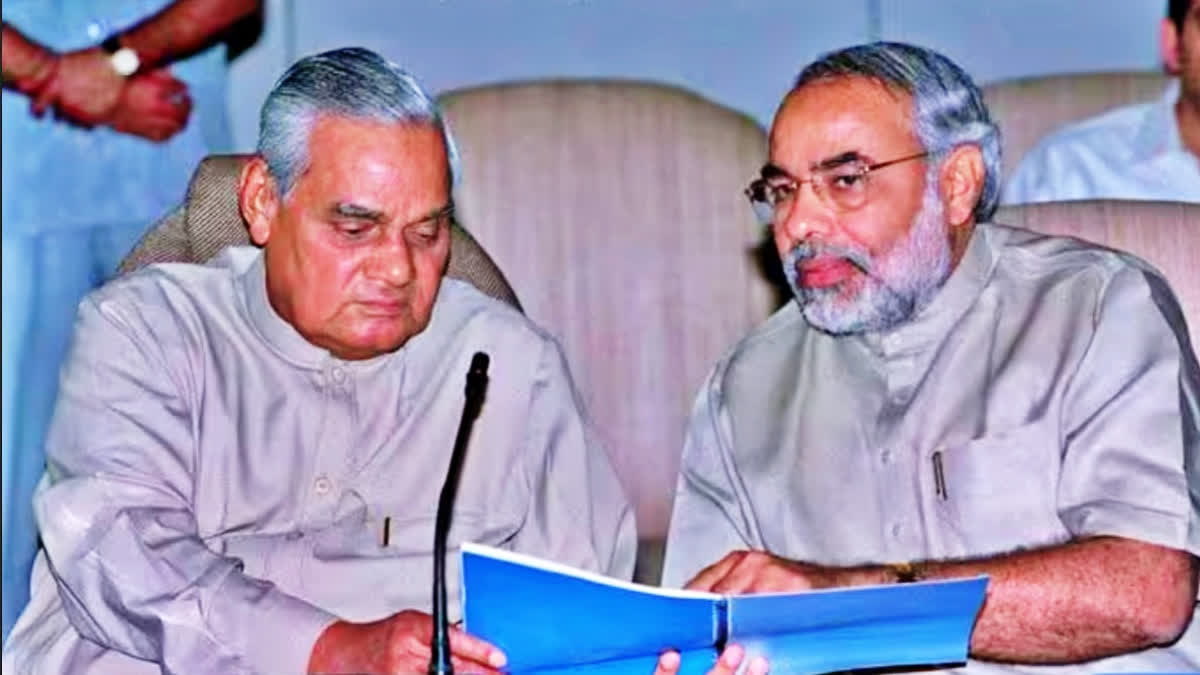New Delhi:Today, 25th December is a very special day for all of us. Our nation marks the 100th Jayanti of our beloved former Prime Minister, Shri Atal Bihari Vajpayee Ji. He stands tall as a statesman who continues to inspire countless people.
Our nation will always be grateful to Atal Ji for being the architect of India’s transition into the 21st century. When he took oath as PM in 1998 our nation had passed through a period of political instability. In about 9 years, we had seen 4 Lok Sabha elections. The people of India were getting impatient and also sceptical about governments being able to deliver. It was Atal Ji who turned this tide by providing stable and effective governance. Coming from humble roots, he realised the struggles of the common citizen and the transformative power of effective governance.
One can see the long-term impact of Atal Ji’s leadership in so many sectors around us. His era marked a gigantic leap in the world of Information Technology, telecom and communications. This was particularly important for a nation like ours, which is also blessed with a very dynamic Yuva Shakti. The NDA Government under Atal Ji made the first serious attempt to make technology accessible to the common citizens.
At the same time, there was foresight in connecting India. Even today, most people recall the Golden Quadrilateral Project, which connected the length and breadth of India. Equally notable were the Vajpayee Government’s efforts to enhance local connectivity as well through initiatives like the Pradhan Mantri Gram Sadak Yojana. Similarly, his Government gave a push to metro connectivity by doing extensive work for the Delhi Metro, which stands out as a world-class infrastructure project. Thus, the Vajpayee Government not only boosted economic growth but also brought distant regions closer, fostering unity and integration.
When it comes to the social sector, an initiative like the Sarva Shiksha Abhiyan highlights how Atal Ji dreamt of building an India where modern education is accessible to people across the nation, particularly for the poor and marginalised sections. At the same time, his government presided over many economic reforms which set the stage for India’s economic surge after several decades of following an economic philosophy which encouraged cronyism and stagnation.
A wonderful example of Vajpayee Ji’s leadership can be seen in the summer of 1998. His Government had just assumed office and on 11th May, India conducted the Pokhran tests, known as Operation Shakti. These tests exemplified the prowess of India’s scientific community. The world was stunned that India had done the tests and expressed their anger in no uncertain terms.
Any ordinary leader would have buckled, but Atal Ji was made differently. And what happened? India stood firm and resolute with the government calling for another set of tests two days later, on 13th May! If the tests of the 11th showed scientific skill, the ones on 13th showed true leadership. It was a message to the world that gone were the days when India would buckle under threats or pressure. Despite facing international sanctions, the then NDA government of Vajpayee Ji stood firm, articulating India’s right to safeguard its sovereignty while simultaneously being the strongest proponent of world peace.
Atal Ji understood Indian democracy and also the need to make it stronger. Atal Ji presided over the creation of the NDA, which redefined coalitions in Indian politics. He brought people together and made NDA a force for development, national progress and regional ambitions. His Parliamentary brilliance was seen throughout his political journey.
